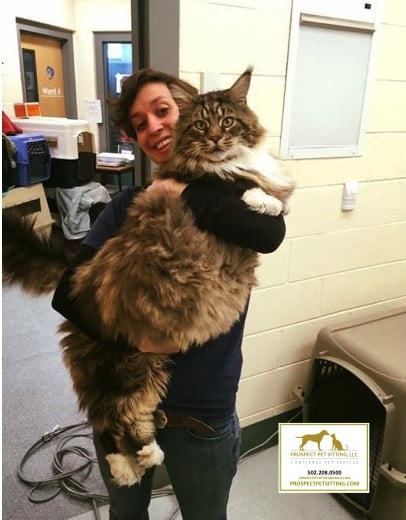Pet Sitters International News recently featured a story from The Dodo highlighting the fact that loving animals so much it hurts emotionally is an actual psychological condition or phenomenon.
MSPCA-Angell in Massachusetts is one of the oldest animal shelters in the United States. It is also one of the busiest. MSPCA-Angell’s director, Alyssa Krieger, has watched staff and volunteers come and go throughout her seven year tenure. Many of them move on just months after starting. Krieger believes this is due to a condition known as compassion fatigue. It seems compassion can be a heavy burden to lug around even for people with the largest and strongest of hearts.
Compassion fatigue is a sustained chronic stress on the mind and body of a caregiver experienced by many people who work with animals. It tends to afflict individuals who have difficulty saying no to animals in need regardless of setting including shelters, rescue groups, veterinary clinics and even among independent caregivers. Even more frustrating is the fact that compassion fatigue is normally difficult to identify by the one experiencing it. Professionals like Krieger point out that the weight of feelings experienced from seeing animals abandoned, euthanized, abused and lonely, builds up over time.
University of Tennessee veterinary social work program founding director Elizabeth Strand stated on NPR “One of the hallmark signs of [compassion fatigue] is that you cannot undo what you’ve been exposed to, and your worldview is forever changed.” Founder of “The Wildcat Sanctuary” in Minnesota, Tammy Thies, told The Dodo “Ohhh yeah. It’s definitely a real disease. Because…our staff, are rescuing animals from bad conditions…because we house so many animals and we have such a high geriatric population, we’re saying goodbye to animals we love a lot.”
Death is an unfortunate reality in the veterinary world in which people outlive most of their pets. That does not mean it is easy for those working in the profession. Even more frightening are the well documented studies showing that suicide rates among veterinary staff are among the highest. One American Veterinary Medicine Association (AVMA) study suggests that one in six vets have considered suicide.
The good news is that awareness is growing within the veterinary community as more people discuss these issues and potential solutions. While some organizations have taken proactive steps like conducting annual seminars on combatting the effects of compassion fatigue, one of the best solutions is to simply ensure having a healthy work-life balance. You have to establish boundaries and take time off to recharge the batteries of your mind and body.



